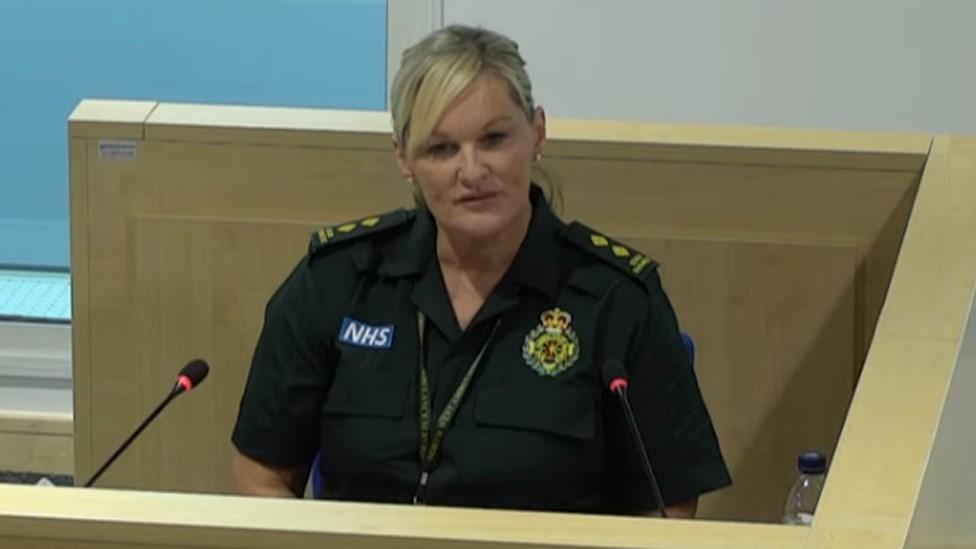Manchester Arena Inquiry: Ex-military police officer hailed 'a hero'
- Published
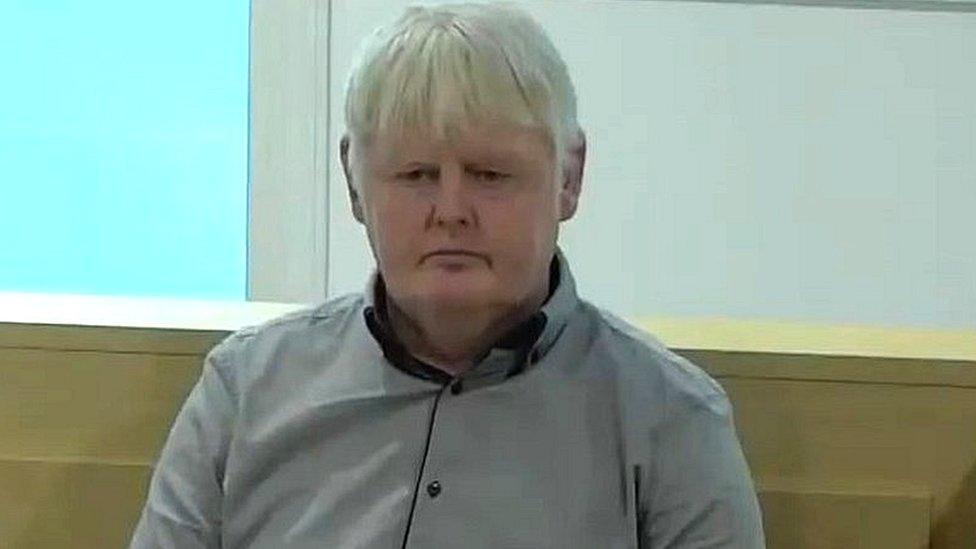
Darron Coster said the first thing when he got to the scene was shut the City Room doors
A former military police officer who helped the victims of the Manchester Arena attack was a "hero", the inquiry into the bombing has heard.
The Manchester Arena Inquiry was told Darron Coster, who was picking up his son, used his Royal Military Police training to assist in the "carnage".
He said the first thing he did was shut the doors to the blast scene after thinking "nobody needs to see that".
Inquiry chairman Sir John Saunders said he had done an "amazing job".
Twenty-two people were killed and hundreds of others injured when Salman Abedi detonated a bomb at the end of an Ariana Grande concert on 22 May 2017.
'Stay with them'
Mr Coster, who retired in 2008, told the inquiry he had basic first aid training and he had served in Northern Ireland, so was familiar with the aftermath of explosions.
He said he "heard a small explosion" and saw "a flash of dust and light from above the concourse area" and pushed his way through the crowd to the City Room foyer.
He said the scene inside was "carnage" and the first thing he did was to shut the doors.
"I just thought 'nobody needs to see that'."
Find information and support at BBC Action Line.
He said some arena staff were helping, but others were in "quite a state".
"I told them if people were not responding, you should leave them; if they could communicate, stay with them and provide them with reassurance," he said.

Twenty-two people died in the attack on 22 May 2017
He said he made several laps of the room, using a belt and a handbag strap as tourniquets on a couple with leg injuries and helping a man with serious injuries.
He said he also spoke to the man's mother after his phone rang and to the mother of a injured woman, who also called, telling both women that their children were alive and likely to survive.
He added that after 35 minutes, he realised he could do no more and left, noticing "a number" of ambulances parked outside.
Addressing him, Sir John said he was "a hero".
"You did an amazing job and I'm sure everyone is very grateful for what you did," he said.
"It just goes to show how useful it is for people to have some sort of training."
The hearing continues.

Why not follow BBC North West on Facebook, external, Twitter, external and Instagram, external? You can also send story ideas to northwest.newsonline@bbc.co.uk
Related topics
- Published14 April 2021
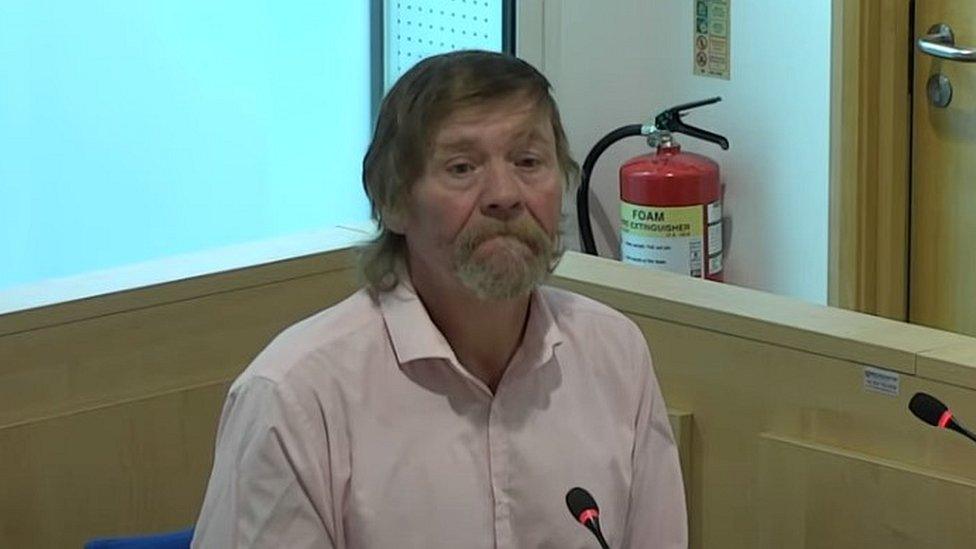
- Published8 October 2020
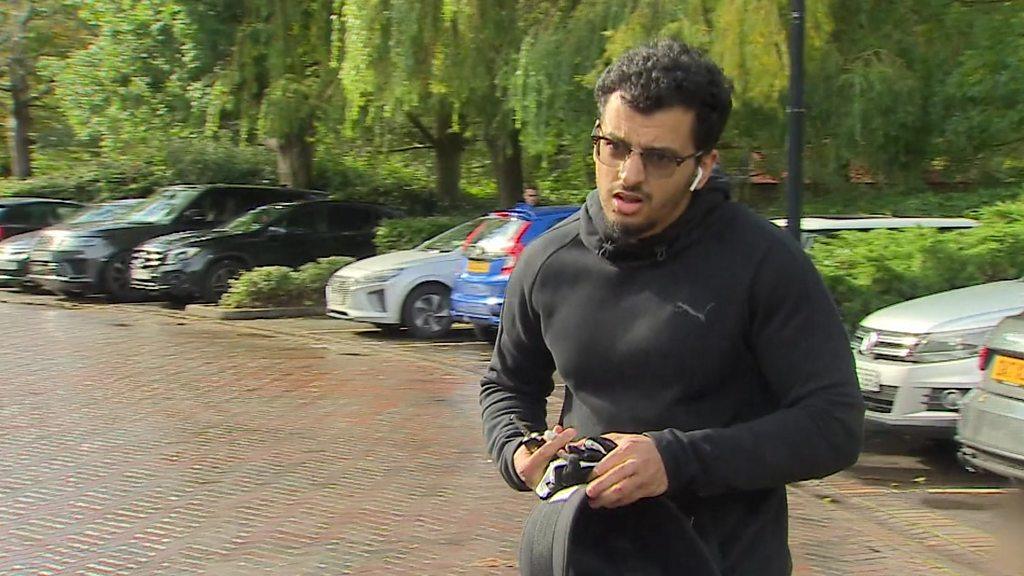
- Published13 April 2021

- Published12 April 2021

- Published30 March 2021
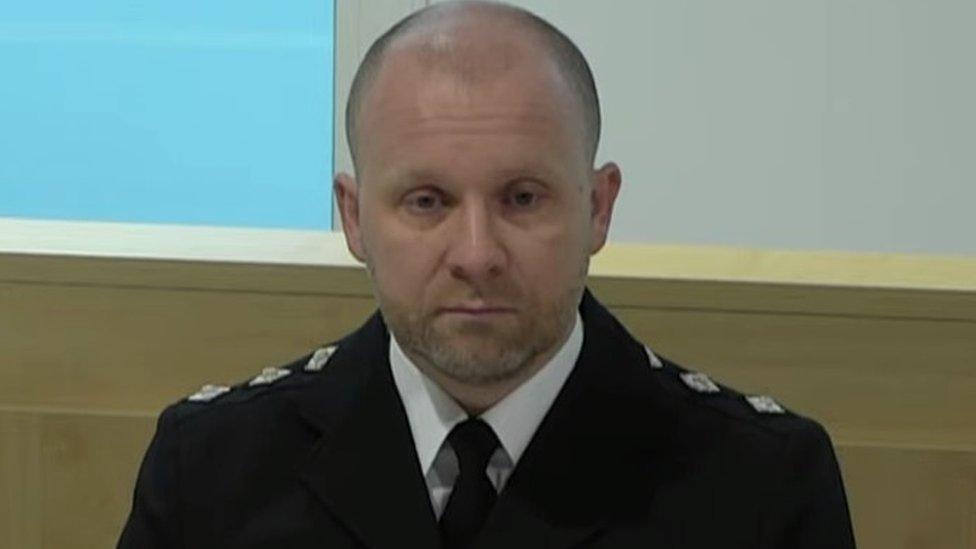
- Published29 March 2021

- Published25 March 2021
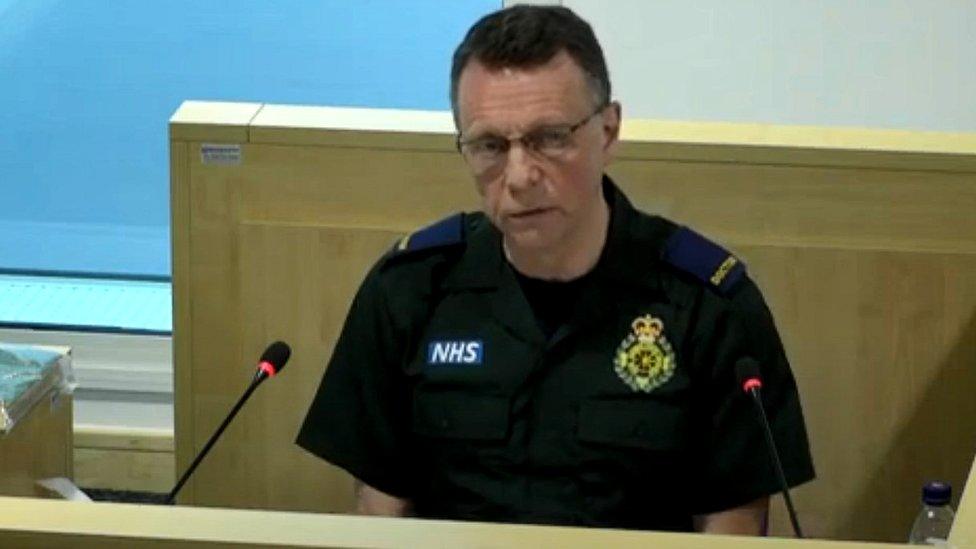
- Published24 March 2021
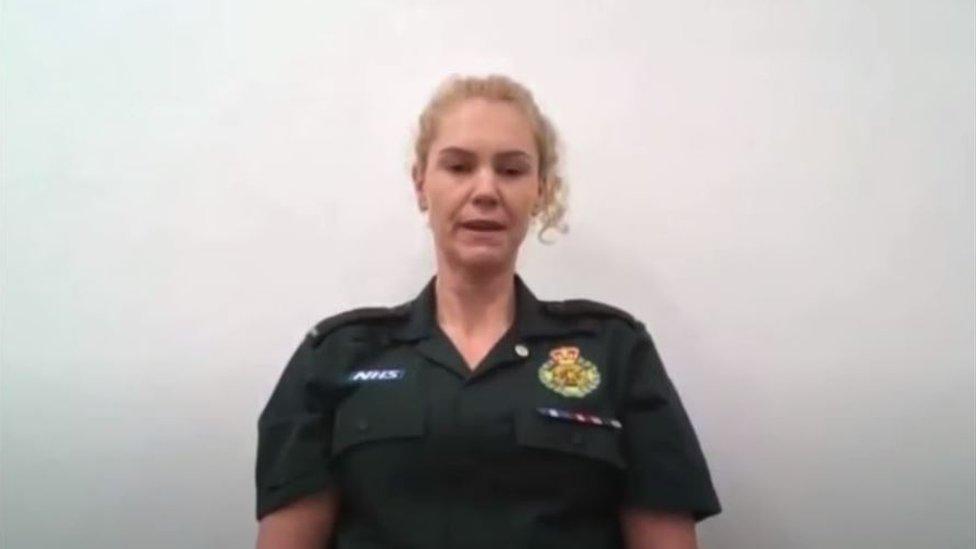
- Published23 March 2021
